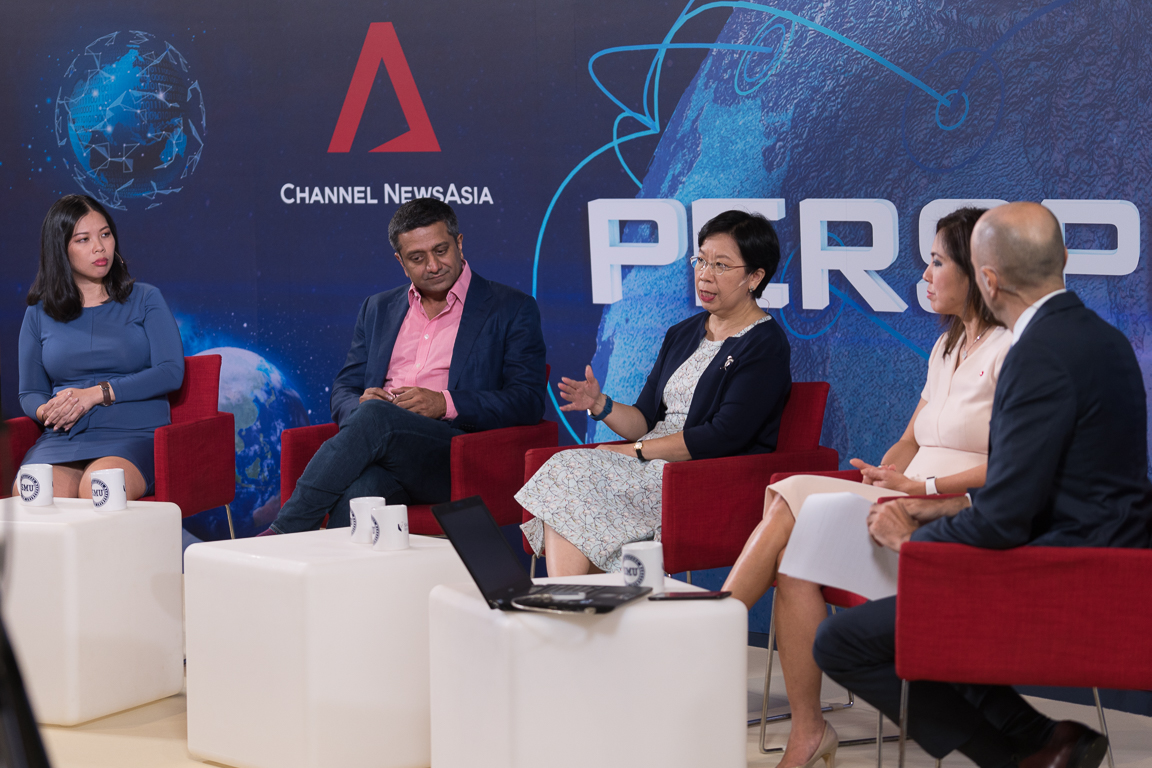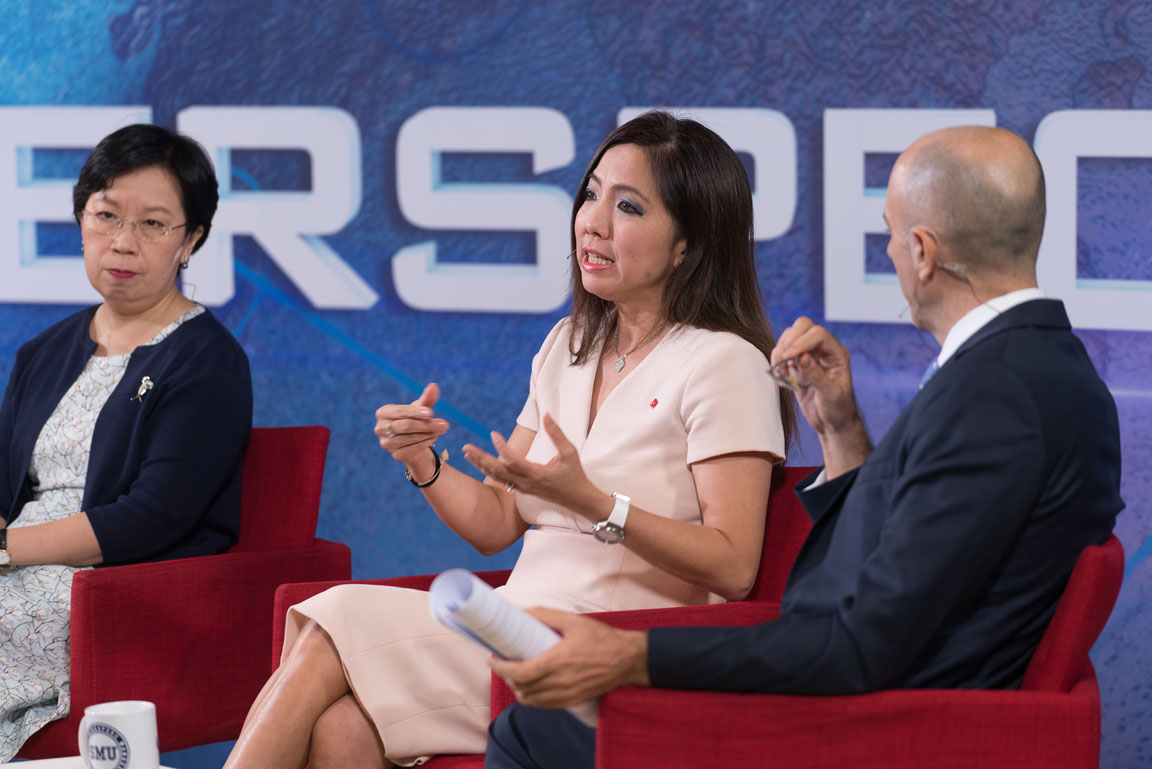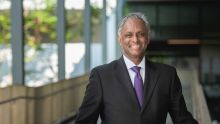
Take a peek at the bestselling titles in the business section of a bookstore and you will find a slew of books dispensing tips on being a good boss, daring to lead, or even adapting principles from the battlefield to win control of the boardroom. Mastering good leadership, in a time when major corporations remain dominated by cults of personality, is a perennial fixation for those striving to build a successful business. However, there is a difference between leading an organisation, and practising stewardship to grow a sustainable and accountable business.
So what exactly is “stewardship”, and why does it matter in today’s business environment? This question was posed to an audience of students, educators, and members of the public in early March, during the filming an episode of Perspectives titled “Stewardship in an Uncomfortable World – Should All Leaders Practise It?”.

SMU is proud to partner Channel NewsAsia for its flagship panel discussion series for the sixth year in a row.
Each episode in the Perspectives series involves a live debate on a current affairs issue among thought leaders and influencers from various sectors including the government, private companies, think tanks, foundations, and even a live audience. In this episode, the panel comprised SMU President Professor Lily Kong, Group Head of Institutional Banking Group at DBS Bank and SMU Trustee Ms Tan Su Shan, Senior Vice President of International Markets at PayPal Mr Rohan Mahadevan, and CEO and Co-founder of the co-working community Found8, Ms Grace Sai.

While each panel member kicked off the discussion with their own interpretations of the term, the consensus was that “stewardship” isn’t just about the short-term goals, but a specific form of leadership laser-focused on a long-term vision. As Professor Kong put it: “For leaders of an organisation, you’re thinking of the long-term sustainability of the organisation. If you’re a leader of a country, someone who is a steward is thinking long-term for the country. And at a global (or) planetary scale, it’s really about sustainability of planet earth and a global steward is someone who thinks about the long-term sustainability of the planet.”
What it means to be a steward
That doesn’t mean short-term goals can be neglected, however. On the contrary, being a good steward means keeping things running smoothly on a day-to-day basis, but also having the foresight and ability to plan for the future. As Ms Tan from DBS said: “You can’t ignore a burning platform, you know, and you can’t ignore quarterly earnings if you are going to be stewarding your business in the long-term and short-term.”
Although in some unavoidable instances, certain long-term goals may conflict with short-term ones. Hence, the responsibility lies with the steward to make sure everyone is on board with the plan. One way to go about this is to ensure that the short-term goals clearly align with the long-term purpose and values of the company, suggested PayPal’s Mr Mahadevan.
“An individual won’t want to work for a company that doesn’t have an aligned sense of purpose. You’ll go choose another industry, or go into education or go into an NGO, because I think at the end of the day you come to work every day because you want to achieve something big in addition to your day to day,” he explained.
Added Ms Tan: “(A good steward) may not be able to tell you what exactly will happen in 10 years time, but they can say hey, I think these jobs may not be around in 10 years, and we only have a year or two to help you adjust to make sure you’re going to be OK, so in 10 years time you’re not jobless. I think a good leader can articulate this vision and work on solutions that enable you to avoid this disruption that could lead to negative consequences.”
A sustainable legacy
In fact, a successful steward should possess not just the ability to lead with charisma and energy, they should also be held accountable for their actions and decisions, and lay the foundation for an organisation to evolve, pivot and thrive in an ever-changing climate.
Ms Sai suggested that the benchmark of a good steward is someone who has left something better than when they first found it. “That could be a generational definition of 42 years each time, or it can be annual, or quarterly, but there’s always that willingness and desire to leave things better than you find them,” she said.
Either way, the panel agreed that having good stewards is especially crucial in today’s world, when countries are becoming more insular, the plights of immigrants are being ignored, and the very existence of an issue as pressing as climate change is being so heavily debated. Plus, it’s a mantle that still can belong to anyone.
“Let’s build bridges and not walls. We can’t stop this technological improvement, but as we embrace it, let’s be mindful of the disruption it causes,” suggested DBS Bank’s Ms Tan.
Added Ms Sai: “I think in times where countries and organisations and individuals feel insecure, there is a tendency to clamp down and be inward-looking. But a much more interesting position to take is to be one of strength, and one of positivity. Perhaps this fake-news post-truth era is short-term, so even that too shall pass. And goodness of what the future can bring will trump that.”



